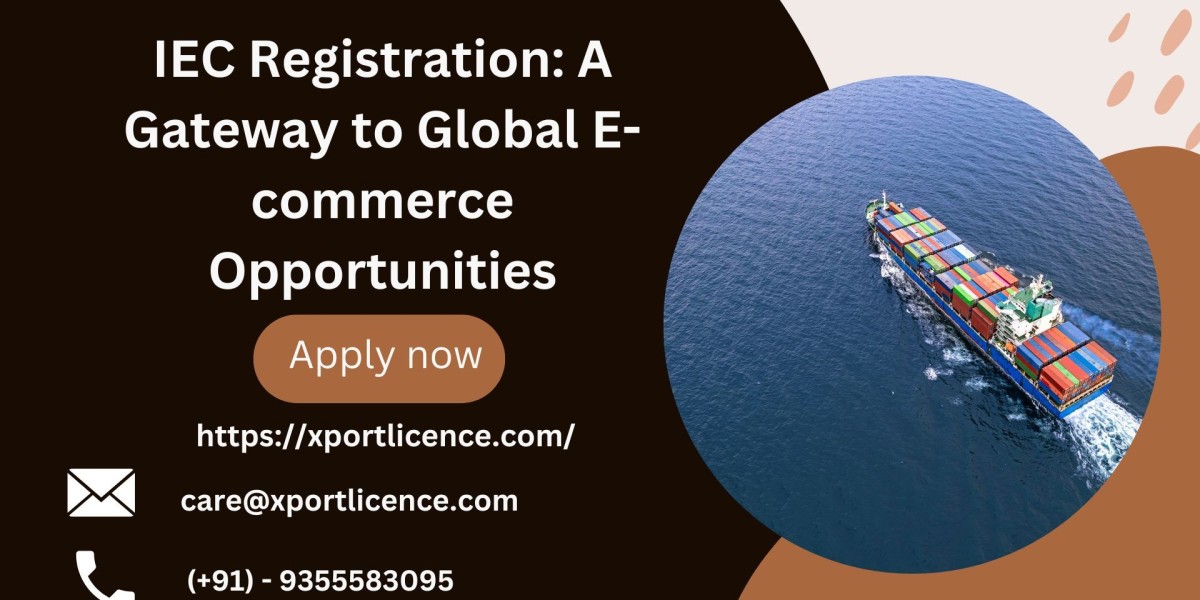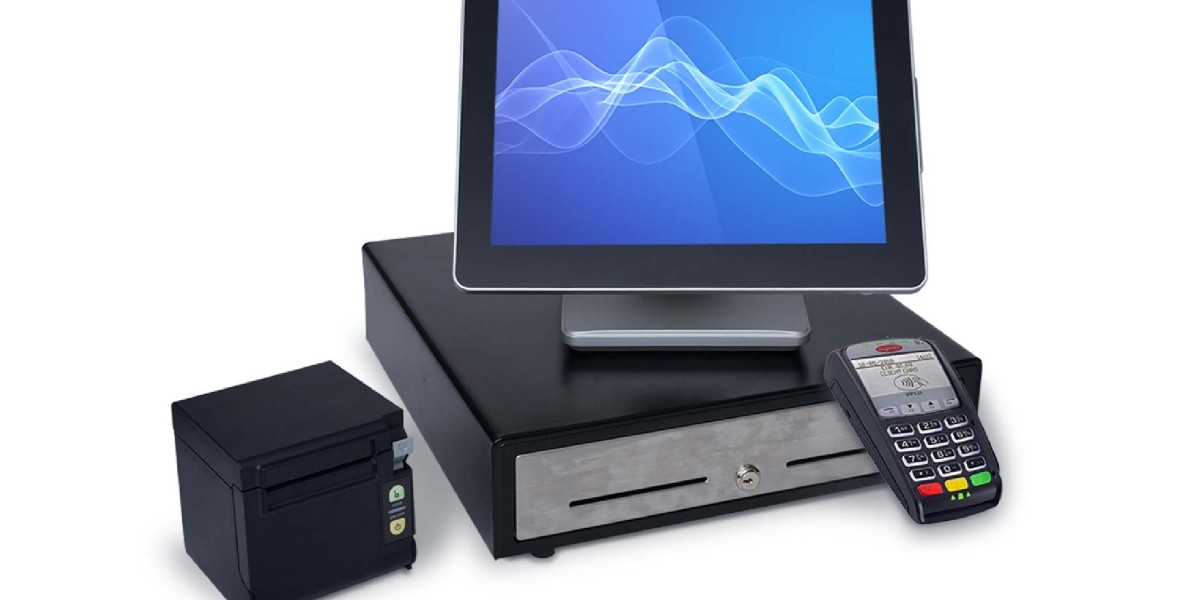Introduction
The landscape of global trade has undergone a significant transformation in recent years, with the rise of e-commerce emerging as one of the most influential changes. Businesses of all sizes, especially small and medium-sized enterprises (SMEs), are now tapping into international markets, selling products and services to a global audience through digital platforms. However, entering this lucrative space requires compliance with various legal and regulatory frameworks, both domestically and internationally. For Indian businesses looking to expand their footprint globally, Import Export Code (IEC) registration is a critical component. This article explores how IEC registration serves as a gateway to unlocking global e-commerce opportunities, making international trade accessible for businesses of all sizes.
Understanding IEC Registration
IEC registration Online is a mandatory legal requirement for any Indian business or individual engaging in international trade—whether importing or exporting goods and services. Issued by the Directorate General of Foreign Trade (DGFT), the IEC is a 10-digit code that remains valid for the lifetime of the business once obtained.
While traditionally required for businesses involved in physical goods trading, IEC has become equally important for businesses operating in the e-commerce space. It facilitates smooth cross-border trade, ensures regulatory compliance, and allows businesses to receive payments from foreign customers through recognized banking channels.
Why IEC Registration is Crucial for E-commerce Businesses
The rise of e-commerce has blurred national boundaries and allowed businesses to sell products and services directly to international customers. While this opens up vast opportunities, it also comes with the need to adhere to trade and customs regulations, particularly when shipping goods or receiving payments in foreign currencies. Here’s why IEC registration is essential for businesses looking to participate in global e-commerce:
Compliance with Trade Regulations:- Global e-commerce platforms like Amazon, Alibaba, and eBay require sellers to comply with local regulations before they can export products. IEC registration is a key part of ensuring compliance with Indian regulations. It acts as proof that the business is recognized by the Indian government and is authorized to engage in international trade. Without an IEC, businesses may face legal challenges or restrictions when trying to trade with international customers.
Facilitating Customs Clearance for E-commerce Shipments:- When goods are sold to international customers, they must pass through customs in both the country of origin (India) and the destination country. IEC registration simplifies the customs clearance process for Indian businesses by providing the necessary documentation that customs authorities require to allow the goods to be shipped out of the country. Without an IEC, businesses may encounter delays, higher costs, or even confiscation of goods.
Enabling Foreign Currency Transactions:- One of the key aspects of running a global e-commerce business is receiving payments in foreign currencies. IEC registration is required by banks and payment gateways when processing foreign payments. Without an IEC, businesses may not be able to receive payments from foreign customers, as banks will not process foreign exchange transactions for unregistered entities. Therefore, having an IEC enables seamless financial transactions and reduces the risk of payment delays or issues.
Expanding Global Reach with IEC in E-commerce
IEC registration is more than just a compliance requirement; it’s a critical tool that empowers Indian businesses to expand their global reach. Here’s how IEC can help e-commerce businesses grow internationally:
Access to Global Marketplaces:- Global e-commerce platforms offer Indian businesses access to millions of customers worldwide. Platforms like Amazon Global, eBay, and Shopify allow businesses to sell their products internationally with relative ease. However, these platforms typically require businesses to comply with local trade regulations, including having an IEC for shipping products across borders. With an IEC in place, businesses can access these platforms and start selling products to global customers.
Reducing Dependency on Domestic Markets:- For many small businesses, relying solely on domestic sales can be risky due to fluctuations in demand, economic downturns, or market saturation. IEC registration enables businesses to diversify their revenue streams by entering international markets. By selling on global e-commerce platforms, businesses can tap into new customer bases, reducing their dependency on the local market and mitigating risks associated with economic cycles in India.
Participation in Cross-border E-commerce Trends:- Cross-border e-commerce is growing rapidly, with more consumers shopping online from international sellers. With an IEC, Indian businesses can participate in this growing trend, selling products like fashion items, electronics, and handicrafts to consumers in countries like the USA, Europe, and Australia. This opens up new revenue channels for businesses, allowing them to capitalize on the increasing demand for unique, high-quality products from India.
E-commerce in the Digital Age: How IEC Enables Growth
The global e-commerce industry is evolving at a rapid pace, with new technologies and platforms continuously reshaping how businesses operate. IEC registration is critical for businesses that want to stay competitive in this ever-changing environment.
Integration with Digital Trade Systems:- The Indian government has introduced several digital platforms to streamline the export process, such as the Indian Customs Electronic Gateway (ICEGATE) and the DGFT’s online services portal. IEC registration allows businesses to integrate with these digital systems, simplifying the process of filing customs documents, tracking shipments, and accessing real-time information. This level of digitization reduces the paperwork burden and ensures faster processing times, enabling businesses to operate efficiently in a competitive global marketplace.
Facilitating Service Exports:- In addition to physical products, many Indian businesses export services, such as IT consulting, digital marketing, or software development. IEC registration is also required for businesses involved in the export of services. With the growth of freelancing platforms and remote work, IEC enables service providers to receive payments from international clients and comply with foreign exchange regulations. This ensures that service-based e-commerce businesses can operate smoothly on a global scale.
Supporting SME Growth in E-commerce:- For small and medium-sized enterprises (SMEs), IEC registration provides a level playing field, allowing them to compete with larger corporations in international markets. With access to global e-commerce platforms, government incentives, and the ability to conduct foreign transactions, SMEs can scale their operations and expand their customer base beyond India. This democratization of trade ensures that even small businesses can thrive in the global marketplace with the right tools and strategies in place.
Note: Click here to update your IEC Code today - Update IEC Code Online
Conclusion
IEC registration is not just a legal requirement but a strategic asset for businesses looking to tap into global e-commerce opportunities. It provides businesses with the ability to comply with trade regulations, access global marketplaces, receive payments in foreign currencies, and leverage government incentives to reduce costs. As e-commerce continues to grow and evolve, having an IEC will be essential for businesses that want to remain competitive, scale internationally, and take advantage of the vast opportunities that global markets offer.









